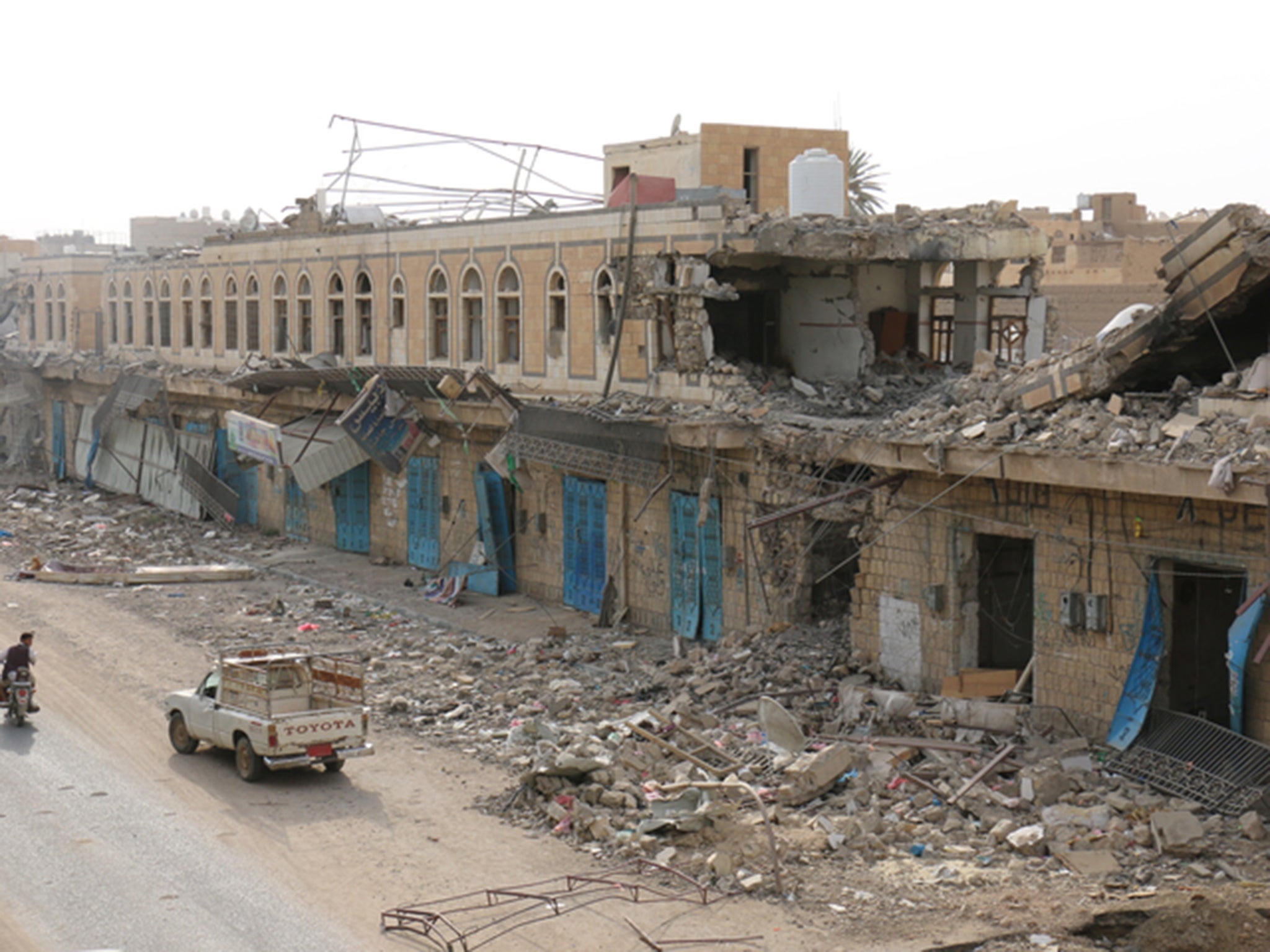Amnesty International urges Britain to stop supplying arms to Saudi Arabia
Airstrikes in Yemen have killed thousands of civilians

Your support helps us to tell the story
From reproductive rights to climate change to Big Tech, The Independent is on the ground when the story is developing. Whether it's investigating the financials of Elon Musk's pro-Trump PAC or producing our latest documentary, 'The A Word', which shines a light on the American women fighting for reproductive rights, we know how important it is to parse out the facts from the messaging.
At such a critical moment in US history, we need reporters on the ground. Your donation allows us to keep sending journalists to speak to both sides of the story.
The Independent is trusted by Americans across the entire political spectrum. And unlike many other quality news outlets, we choose not to lock Americans out of our reporting and analysis with paywalls. We believe quality journalism should be available to everyone, paid for by those who can afford it.
Your support makes all the difference.Amnesty International has mounted pressure on the UK to stop supplying weapons to the Saudi-led coalition in an effort to ease the conflict in Yemen.
The UK government was also called upon to investigate whether the arms had been used to kill civilians in the country, after a report presented evidence of “the reckless nature of the Saudi-led coalition’s bombing campaign".
The attacks have been aimed at overthrowing Houthi rebels in Yemen by a coalition comprised of Saudi Arabia, Jordan, Egypt, Morocco and Sudan.
But the report said bombs launched from aircrafts were the "biggest killers of civilians".
The report, released on 7 October, highlighted 13 deadly air strikes that had taken place in Sa’da, in north-eastern Yemen.
From May to July 2015, 100 civilians were killed including 59 children, the ‘Bombs Fall from the Sky Day and Night’ report highlighted. More than 50 people were injured in the attacks which struck homes, vehicles and shops.
In total, around 2,400 civilians have been killed as a result of the conflict. It is believed that 80 per cent of the country’s population is in need of aid, according to the United Nations (UN).
Typhoon and Tornado fighter jets have been used during the military operations in Yemen, which use bombs manufactured and supplied to Saudi Arabia by UK arms company BAE Systems, according to Amnesty.
“With mounting evidence of the reckless nature of the Saudi-led coalition’s bombing campaign in Yemen, the government must urgently investigate whether UK-supplied weaponry has killed civilians in places like Sa’da,” said Oliver Sprague, the director of Amnesty International UK’s Arms Control Programme.
Donatella Rovera, an Amnesty senior crisis response adviser, said some of the “unlawful” airstrikes could “amount to war crimes”.
“It demonstrates in harrowing detail how crucial it is to stop arms being used to commit serious violations of this kind,” she said.
According to the report, 37 export licenses were approved for Saudi Arabia by the UK between 15 March and 1 July 2015.
Amnesty International also called for the US to stop transferring arms to the coalition.
A Government spokeswoman said: “UK military personnel are not directly involved in coalition operations in Yemen. The UK is supporting Saudi forces through pre-existing arrangements and additional liaison officers based in their headquarters. As part of this support, the UK operates one of the most rigorous and transparent export control regimes in the world, and all exports of arms and controlled military goods are assessed on a case-by-case basis against the Consolidated EU and National Arms Export Licensing Criteria.
“We are aware of reports of alleged violations of International Humanitarian Law (IHL) in Yemen by all sides to the conflict and take these very seriously. We have raised our concerns with members of the coalition and have received repeated assurances of IHL compliance, and continue to engage with them on those assurances.”
Last week, the UN Human Rights Council failed to set up an independent international investigation into the Yemen conflict, although there was support for a national-led investigation. Ms Rovera said “the world’s indifference to the suffering of Yemeni civilians in this conflict is shocking”.
Earlier this week, the Houthi rebels confirmed they would commit to helping end the conflict in Yemen. The BBC reported that a representative said the peace plan was an “important and fundamental… step towards the resumption of the political process” in a letter to the UN secretary general.
Join our commenting forum
Join thought-provoking conversations, follow other Independent readers and see their replies
Comments